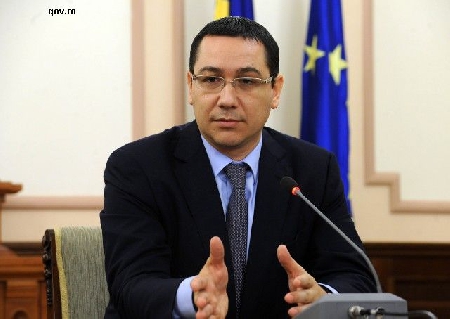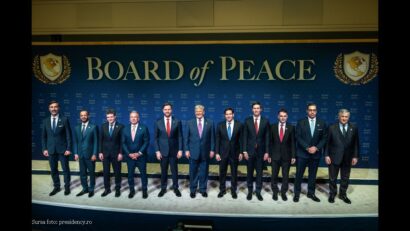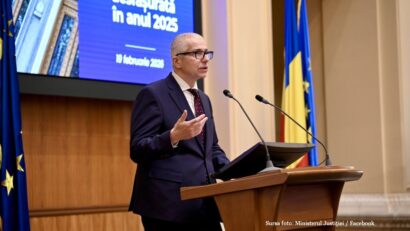Budget projections for 2013
Addressing social injustice, applying fiscal rules for everybody and stopping wasting the public money are some of the elements of budgetary discipline the government announced for 2013.

Daniela Budu, 11.01.2013, 13:02
The goals of Victor Ponta’s cabinet in 2013 are budgetary discipline, supporting the private environment and social justice after four years in which the fiscal and budget policy of the former government was characterised by austerity, underdevelopment and injustice. The cabinet also estimates that budget returns will stand at 46 billion euros and spending at 49 billion this year, which means a budget deficit of 3 billion. Prime Minister Victor Ponta explains where state spending will go:
Victor Ponta: “10.2 billion euros will cover the expenses incurred by public employees, including doctors, teachers, the police force, fire fighters, public servants, Parliament, local administration, judges and all the other people whose salaries come from public money. 11.1 billion euros will go to pensions, and I have to remind you that we have 4.5 million employees and over 6 million pensioners. 7.8 billion euros go to investments and 7.6 billion to goods and services, that is the functioning of state institutions. Social assistance spending amounts to 4.4 billion euros, interest rates stand at 2.5 billion, subsidies at 1.1 billion, Romania’s contribution to the EU budget is 1.4 billion, while 2.9 billion euros will be spent on other types of transfers and spending.”
The government has set a cautious economic growth rate for 2013 of 1.8% of the GDP. The budget bill is based on a GDP worth 140 billion euros, a flat tax system and an exchange rate of 4.5 lei for one euro. The budget projection for 2013 does not allow for an increase in salaries and pensions, but it does provide enough funds to cover the return of public sector salaries to the level prior to the cuts of June 2010 and the indexation of pensions by 4%. To meet the budget deficit target agreed with the International Monetary Fund, the government plans to rethink the tax collection system, combat tax evasion and, last but not least, cut spending. Talking about spending, Victor Ponta explained:
Victor Ponta: “The government has decided that the budget allocated to parliament in 2013 will remain at the level of 2012, despite an increase in the number of MPs. The amount allocated to each MP will thus be lower, which is a sign of responsibility and a way of setting an example, by starting at the top when it comes to reducing expenses.”
The prime minister also says he expects the upcoming assessment mission by the International Monetary Fund to highlight progress as well as delays:
Victor Ponta: “We have made progress, particularly in the area of fiscal and budgetary adjustment, but there are also setbacks, particularly when it comes to state companies. While TAROM and the Infrastructure division of the Railways Company already have private managers, we must step up things in this respect in the other state companies as well.”
The prime minister has made it clear there will be no talk of a new agreement with the International Monetary Fund until the on-going agreement comes to a successful end.






























